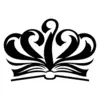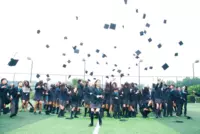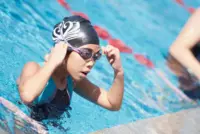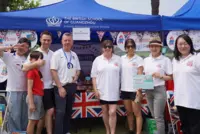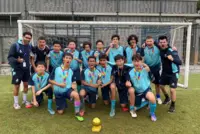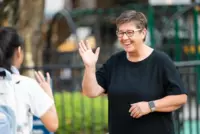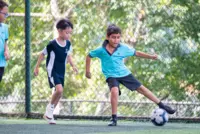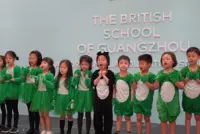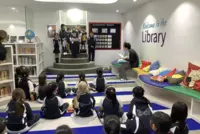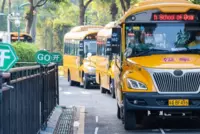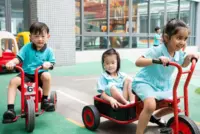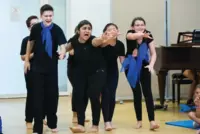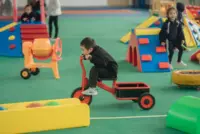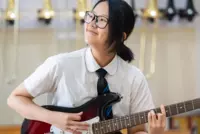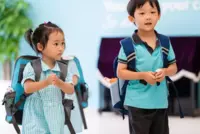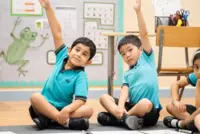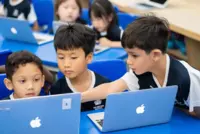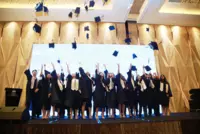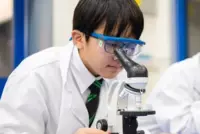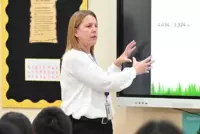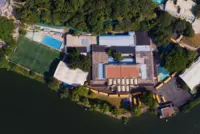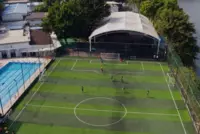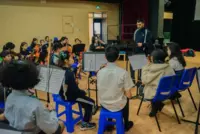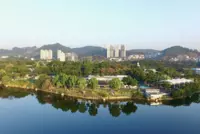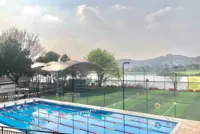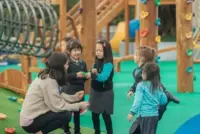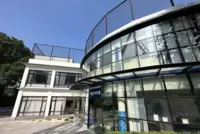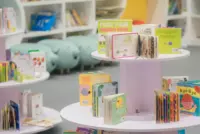
The British School of Guangzhou is the oldest international, private school of British heritage in Guangzhou, China. From our lively South Lake campus, our internationally experienced, outstanding teachers will challenge your child to earn excellent academic results – leading them to the world’s top universities.
We’re a British international school representing over 50 nationalities with a high reputation for academic excellence. As part of the Nord Anglia Education group of premier schools around the world, at the British School of Guangzhou, we follow the English National Curriculum and motivate our students at each step to be ambitious and achieve more than they ever imagined possible.
Our highly experienced teachers take personal approaches to teaching, so they identify and cultivate your child’s aspirations, needs, and interests – so they're supported to perform at their best. In sync with academics, our teachers build your child's character through many activities that energize their spirits in and beyond the classroom.
At the British School of Guangzhou, we’re proud to enable your child to explore new horizons and develop a love of learning, following the successful paths of BSG alumni who have attended the world’s leading universities.
I am always happy to meet visitors in person and take great pride in showing you exactly why we are the school of choice for so many families.
Ms. Kerry Millar
Principal
We have organised the information available for this school into 10 sections and 40 questions. Click or tap on the name of each section to read more.
|
Number of students
|
Around 1000
|
|
Number of nationalities represented in the school
|
50+
|
|
Most common nationality
|
Approximately 30% of students are from the region of Hong Kong, Taiwan and Macau; 40% are from America, Europe and Australasia; 8% come from Singapore, India or Malaysia; 15% are South Korean and the remaining 7% come from various other countries around the world.
|
|
Ratio of local students to international students
|
Following Chinese Education Bureau rules, our school cannot enrol Chinese passport holders.
|
|
Native English speaking teachers
|
Yes
|
|
Language support for students not fluent in English
|
Additional English Language Support
|
|
Additional language classes offered by the school
|
Spanish, French, Chinese
|
|
Max. number of students per class
|
Toddler's class maximum is 12, Pre-Nursery and Nursery the maximum is 18, and Reception is 20. From Year 1-3 the maximum is 22, and for Years 4- 6 and Secondary classes, the maximum number is 24 students.
|
|
Average number of students per class
|
20
|
|
Does the school employ teaching assistants?
|
Yes
|
|
Use of technology in the classroom
|
All learning areas are connected to each other and the outside world through a state-of-the-art wireless network. Interactive whiteboards are used on a daily basis.
A 1-to-1 information technology programme has been growing momentum at the school since 2011 with an age-appropriate Apple computing device given to each student aged 9-13 at no extra costs to parents. We implement Bring Your Own Device (BYOD) for students from Y10-13. In addition, banks of Apple devices are available, offering students further IT support.
|
|
Is the school ready to use virtual classrooms when needed? (e.g. teaching lessons online if the school is closed, e.g. during COVID-19 closures)
|
Yes, we have an established Virtual Learning programme that was successfully implemented during Covid-19 quarantine months.
|
|
Do students practice religion at the school? What religion?
|
We are an all inclusive school.
|
|
External examinations or assessments available
|
Student between age 14-16 take IGCSE and from age 16-18 years they sit A Levels exams. We are also a registered SAT exam centre.
|
|
Results in these examinations
|
2024 IGCSE RESULTS
The two main criteria that are used to judge examination performance for 16 year olds in the UK are; achieving 5 grades at 'C' or above, and the number of the highest grades achieved. We are very proud that 92% of all examinations sat by the British School of Guangzhou students received grade 'C' or above.
This is a tremendous achievement, but our top students really shone with 60% of exams taken awarded either grade 'A*' or 'A '- the highest possible grades. This is compared to the UK's average of 29%, showing just how far ahead our students are as they move to university entry.
2025 A-LEVEL RESULTS
With a 100% pass rate, our A-Level results are testament to our academic success and commitment to building a lifelong love of learning.
62% of exams taken by our students achieved an 'A' or 'A*' grade (UK average 28.2%) and 82% achieved A*- B grades.
|
|
Do teachers assign homework to their students?
|
Yes
|
|
Approximate hours of homework given
|
The following times are a guideline for weekly homework:
Reception: 10 minutes, 3 times per week
Year 1: up to 15 minutes, 3 times per week
Year 2: up to 20 minutes, 3 times per week
Year 3-5: up to 40 minutes, 4 times per week
Year 6: up to 1 hour, 4 times per week
Year 7-9: up to 2 hours, 4 times per week
Year 10-11: up to 2 hours, 4 times per week
Year 12-13: 5 hours minimum per subject per week
|
|
Percentage of students who pursue further education post-graduation
|
100% of our graduates go to university, with an 85% of A-Level graduates gaining entry to their first-choice university.
|
|
Dedicated staff/programs for students with special learning needs
|
Special Educational Needs and Learning Support
|
|
The school supports gifted, able and talented students
|
We do have a very rich enrichment programme that supports our students talents and holistic growth.
|
|
Student access to education psychologist
|
Student Councillor
|
|
Entry evaluation for students
|
One to one interviews and online assessments
|
|
Brief description of entry evaluation required
|
Early Years (Ages 1 to 4): Assessment during the visit is informal and involves an activity in a classroom setting with some simple number and letter recognition (mainly ages 3 & 4). Standard of behaviour in a classroom setting will be taken into account.
Key Stage 1 (Ages 5 to 6): A simple written assessment will be undertaken in both Mathematics and English. Standards of behaviour and social interaction are also taken into account.
Key Stage 2 (Ages 7 to 10): An online and written assessment will be undertaken in both English and mathematics, with the expectation to perform at a similar level to
peers within the School and in the UK.
Key Stage 3, IGCSE and A-Levels (Ages 11 to 17): An online English test and Non-Verbal Cognitive Ability Test (CAT4) will be undertaken from all students applying to enter in our Secondary school. With these assessments the school will be able to understand the skills and level of applicants and compare with the expectation to perform at a similar level to peers within the School and in the UK.
Students applying for IGCSE or A-Level courses may be asked to undertake subject tests to demonstrate a potential to succeed in the examinations, with a capacity to reason and handle complex issues and subject matters.
|
|
Waiting list
|
Depends on the grade level.
|
|
Deadline for registration (new academic year)
|
No deadline
|
|
Students can join after academic year begins
|
Yes
|
|
School start time
|
8:00
|
|
School finish time
|
Mondays & Fridays at 15:00. Tuesday, Wednesday and Thursday the school ends at 16:00 due to after school activities.
|
|
Supervised care before/after school
|
N/A
|
|
School bus service available
|
Yes
|
|
School provided lunches
|
Yes
|
|
Food alternatives for special dietary needs (ie. vegan, kosher, halal etc)
|
We provide vegetarian and non-pork meal options.
|
|
Uniform required
|
Yes
|
|
Facilities at the school
|
5 science labs, 3 libraries, a theatre, 2 dance studios, recording studio and an amphitheatre.
|
|
Sports facilities at the school
|
Outdoor swimming pool, basketball court, two soccer field, gym
|
|
Qualities and characteristics best defining the school
|
The British School of Guangzhou (BSG) is a premium British international school serving the community in Guangzhou, China. BSG is a member of the Nord Anglia Education family of schools; teaching 75,000+ students in 80+ schools across 30+ countries. The school benefits from unique collaborations with UNICEF, The Juilliard School (New York) and MIT.
|
|
Teaching approach of the school
|
BSG's primary aim is to nurture intellectual curiosity through engaging and enquiry-led teaching. BSG encourages students to work independently and collaboratively as they demonstrate creativity and innovation in their approach to solving problems. Students are always provided with a safe, stimulating and supportive learning environment, allowing them the courage to take calculated risks and to learn and improve from feedback. BSG uses innovative teaching methods and technology to further enhance our students’ mastery and enjoyment of their studies helping to foster a love of learning that will last a lifetime.
|
Early Years and Primary School
Our Early Years programme spans Toddlers, Pre-Nursery, Nursery, and Reception stages of your child's education. Under the direction of our qualified and experienced early years teachers, we weave themes into all our activities and lessons, and our youngest students learn by watching others, talking, asking questions, listening, exploring, and investigating.
During these Primary years, BSG students distinguish themselves by how they take initiative in their learning, increase their responsibility, and become inquisitive. Our students learn to express themselves; apply knowledge through practical tasks and problem solving; build their personal and social skills; and mature with the confidence that comes through self-discipline, resilience, and commitment.
Lower and Upper Secondary
Preparing our students for their IGCSEs and A-levels, our lower secondary curriculum nurtures both personal and academic growth, sparks critical thinking, and cultivates independent minds.
During the Upper Secondary years, our students study a broad and balanced programme. Secondary learning develops students’ key critical thinking and analytical skills as well as their ability to communicate ideas effectively within chosen subject areas. All their lessons build towards university and life preparedness.
The British School of Guangzhou | Ages 1-18
Surrounded by the stunning South Lake, the tree-lined, lakeside BSG campus spans an impressive 44,000 square meters with open, airy classrooms and large windows for appreciating the inspiring views – ideal for the rigorous and contemplative learning that happens inside and outside our classrooms every day. At BSG, we appreciate being a little secluded, away from the rest of Guangzhou's congested city life.
Our stunning South Lake campus features state-of-the-art sport facilities for many different activities and world-class performing arts spaces. Additionally, we have many spaces that support over a hundred after-school activities every week, so our students can nurture their interests and compete at the top of their game.
